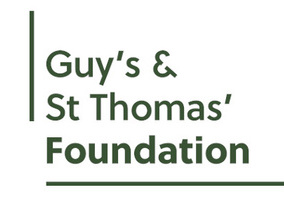A large end-of-life charity has reported a deficit of £8.7m while recording its highest-ever level of legacies, according to recently filed accounts.
Accounts for the year ending 31 March 2023 show that expenditure at Marie Curie increased by 13% to £126.7m, which in turn contributed to the charity’s “planned” deficit.
Legacy funds, or money donated as gifts in wills, rose to a record high of £44m in 2022-23, up from £38.8m the previous year.
The charity said in its accounts that its “number one ambition is to grow” and more than double the number of people at the end of life it directly supports each year by 2028, from 44,200 to 100,000.
Record legacy income
The accounts show that Marie Curie’s total income modestly increased last year, from £165.8m to £167.3m.
Fundraising and other trading income rose by £3.9m to £97.3m (2022: £93.4m), thanks to an increase in legacies.
The charity, which currently has 133 charity shops across the UK, exceeded its £15.4m retail target for 2022-23, “with sales of £17.2m, 11% above the expected figure” and 24% more than the £13.8m recorded in 2021-22.
“This has been driven by an increasing demand for sustainable shopping and an agile response to stock placement,” the accounts say.
“Our team quickly moved stock to the channel showing the strongest performance – for example, items originally planned to be sold online were also sold in our high-street shops where there was increased demand, maximising sales opportunities.”
Marie Curie’s flagship annual fundraising event, the Great Daffodil Appeal, raised £4.67m, “bringing the total raised since the appeal launched in 1986 to over £134m”.
£8.7m deficit
The charity recorded a deficit of £8.7m last year, compared to a surplus of £11.6m in 2022, before gains and losses on investments and pensions.
The accounts state that the deficit reflects “increased investment in growth across the full scope of our activity, with charitable activity spend increasing by 13% to £126.7m (2022: £111.7m)”.
This includes “additional investment in its strategic priorities through its Impact and Innovation Fund, which totalled £8.2m last year (2022: £0.6m), and a decision to increase pay for nursing, clinical and other staff “to aide recruitment and retention and enable us to support delivery and future growth in our services”.
“Our strong financial performance throughout the pandemic has enabled Marie Curie to incur a planned deficit in 2022-23 whilst maintaining our liquidity and reserves positions at a reasonable level,” the accounts read.
Increased staff number despite national shortages
During the year, the average number of employees at the charity grew from 3,721 to 3,843.
The accounts note that, due to the national shortage of healthcare workers, the charity “must ensure our processes for recruiting are fair, inclusive, innovative and simple for carers, healthcare workers and other professionals who might consider working for Marie Curie”.
As part of this, Marie Curie began recruiting and engaging caring services staff via “non-traditional means” including social media, television, radio and roadshows.
“We measured the efficacy of social-media recruitment – on Facebook, for instance – to expand our reach to candidates who may not view our traditional advertisement providers, and found that we can recruit in one-tenth of the time of traditional channels.
“We’ve also introduced or improved recruitment processes and technology, such as an automated tool for pre-screening – for instance, for reference checking and criminal background checks. We also reviewed our applicant tracking system to allow us to use more automated systems to track diversity, generate offer letters and provide a compliant, insightful service.”
Related articles













